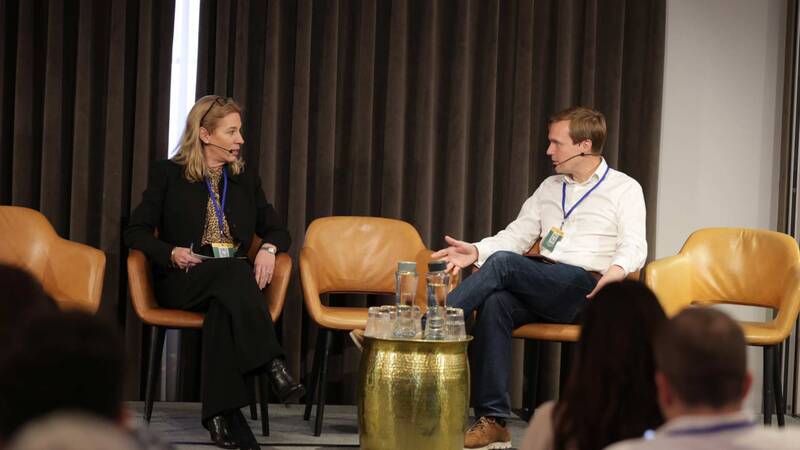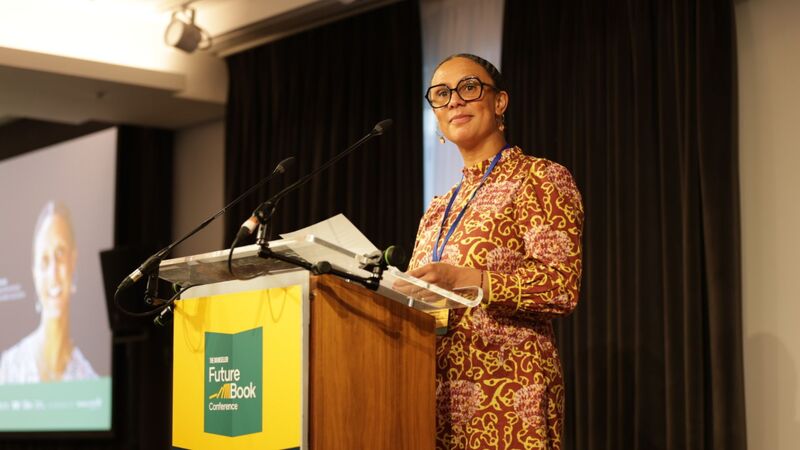You are viewing your 1 free article this month. Login to read more articles.
When an editor inspires an author
Editor-originated IP is a growing model for producing powerful work.
Publishing is all about partnerships. We’re used to the image of the lone author, working away and emerging, blinking, at the end of the writing process. But there too is the agent alongside the author – that crucial ally; the publicist and author, who shape the book’s external message; marketing and publicity, sales and marketing… and, of course, the pivot around which these things turn within the publisher, the creative union of editor and author.
There is something alchemical that happens within these relationships that can produce magic, and it’s a flow of process – from author to agent to editor and eventually to the reader – that feels familiar, traditional.
But there is another model, a growing model that originated in non-fiction and children’s publishing and is now increasingly common in adult commercial fiction too, including at Little, Brown.
Frequently and incorrectly called "IP" – given any creative work is Intellectual Property – editor-originated IP is a creative partnership between the editor and the author that reverses the process: the editor conjures a concept, fleshes it out, and then approaches an author to write a book.
In non-fiction this is extremely familiar: if you’re publishing fast into a trend, a publisher can’t afford to stand and watch the tide recede, waiting for a suitable submission. They must build their own boat and hop in.
In fiction, there are similar but different routes to traverse, reasons to jump in. Rarely can a novel be put together as quickly as, say, a gift book. But to seek out new, diverse voices who have been historically underrepresented by publishers; to fill glaring commercial gaps on a list; or to publish into a specific market or markets, the editorial equivalent of direct action can be extremely powerful.
It transforms the role of the editor into something more akin to a film producer or TV development executive – the extent of the involvement is far, far greater because you are, pretty much, buying a book on trust. The work doesn’t exist when you buy it, but you see the potential in the author. You see what could be. It’s a leap of faith, with a well-honed treatment to keep everything on track.
It transforms the role of the editor into something more akin to a film producer or TV development executive
The bond it creates between the editor and author, the partnership, is a precious one, because from day one the editor is there, guiding the book from its conception. But something beautiful also happens, a moment when the one person manning that boat becomes two. You take an oar each and, hopefully, row in the same direction.
And for the author? For the debut novelist – perhaps coming from a different writing discipline, genre or age of readership – it’s a way to learn the art of novel writing from the inside out, with an editor (and of course agent) by their side from day one. And whatever stage of their career the author is at, it’s a guaranteed income while they write. Another reversal of the norm.
There are aspects about this model that have been seen as controversial. Editors sometimes ask for different contractual agreements to reflect the far greater time commitment and original ownership of the idea, prior to the partnership; and it’s vital the author still feels a sense that the book is theirs, which, perhaps, is why editor-originated IP is rarely outed as such. The editor steps back into the background and the other partnerships push the author back to the fore, exactly as it should be.
With The Mitford Murders series, there was no question that conceptually it was my creation; but likewise that the finished book, her first novel, was the work of its author, Jessica Fellowes. Her voice, her way with character, her historical expertise – these talents brought my original idea to life in ways I could never have foreseen. I can’t imagine anyone else having written those books now. And as the relationship changed during the series and Jessica took the front seat, so too did the contractual details to reward that time and input. Her next novel will be traditionally acquired – and I can’t wait to read it.
The results of that series have been impressive: 225,000 net sales (just via Little, Brown UK); more than £1m in rights revenue; 18 international subrights sold; and TV rights sold twice, first to Left Bank ("The Crown"), and more recently to Endor Productions ("Vienna Blood", "Anansi Boys"), being adapted by a BAFTA-nominated screenwriter.
Jessica also credits the series with kickstarting her fiction career, saying: "Having worked for a long time as a journalist and a non-fiction writer, I wanted the new challenge of fiction. But I did not know if I could work alone, having enjoyed the collaborative process of non-fiction. So the approach from Ed felt like an extraordinary synthesis of timing and professional luck. I loved the concept from the off, but it was knowing that both he and the Sphere publishing team were by side that gave me the confidence to give fiction a go. At the start, we worked very closely together across the different stages of the novel. Over the course of the series, our relationship evolved, where I felt more able to work alone and he felt more able to allow that to happen. The building of trust and faith in the process has been so enjoyable and I have been lucky beyond belief that Ed and Sphere took that chance on me."
As much as this is an industry about ideas, it’s most of all about people. About authors. Bringing together ideas and authors and introducing those ideas to readers, reaching the other shore, is what it’s all about – wherever those ideas come from and however the journey is made.




















